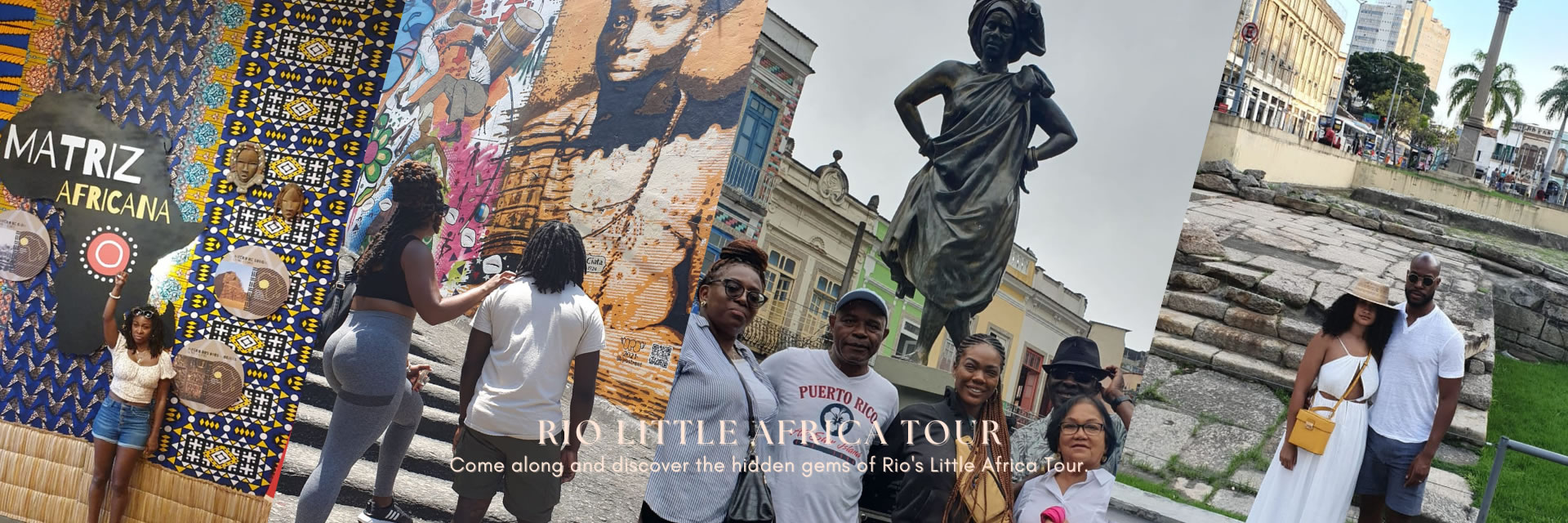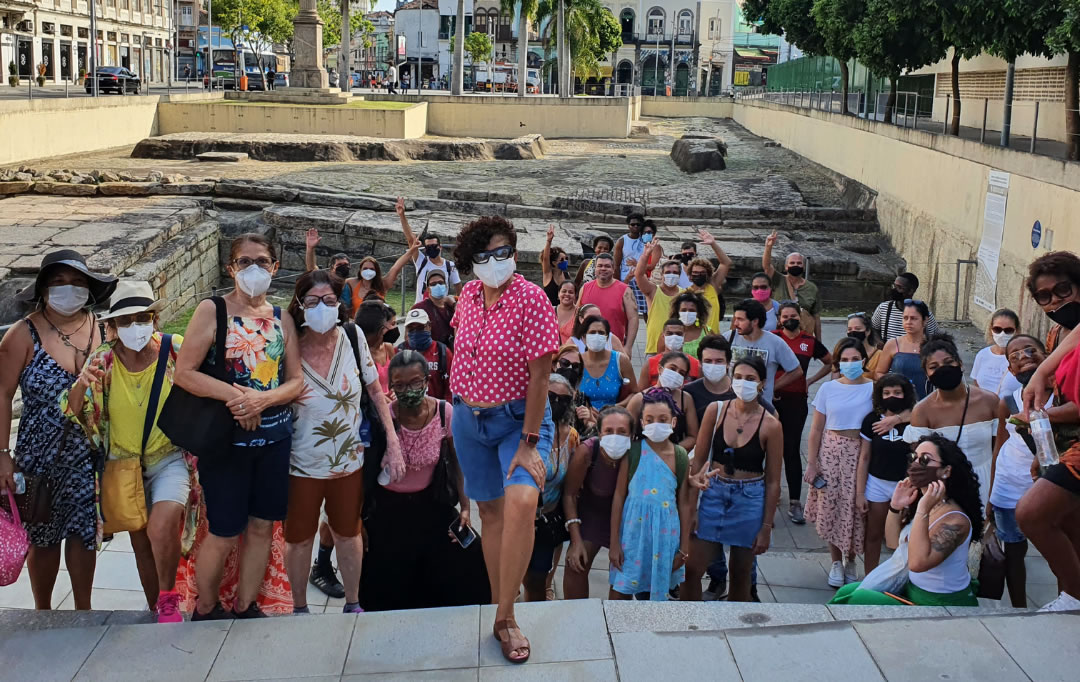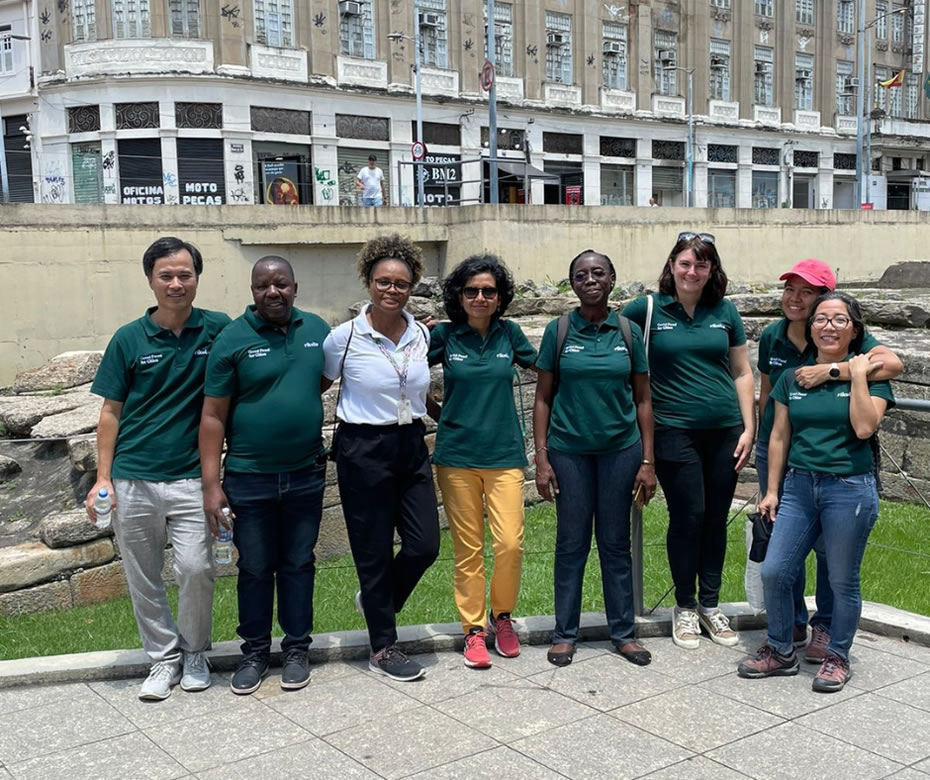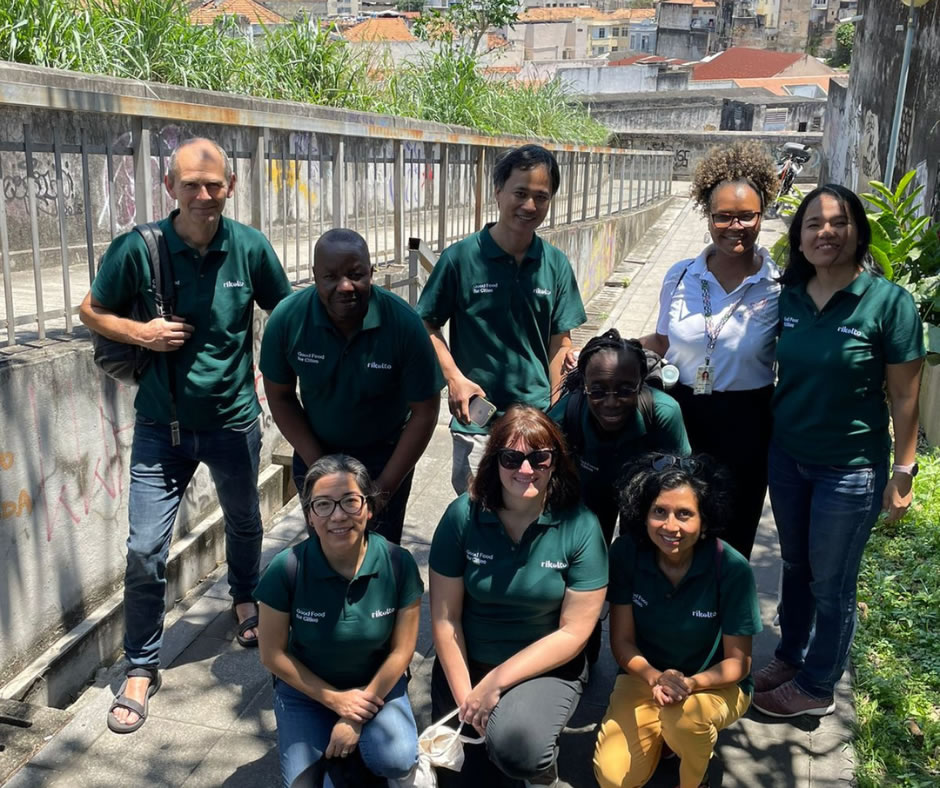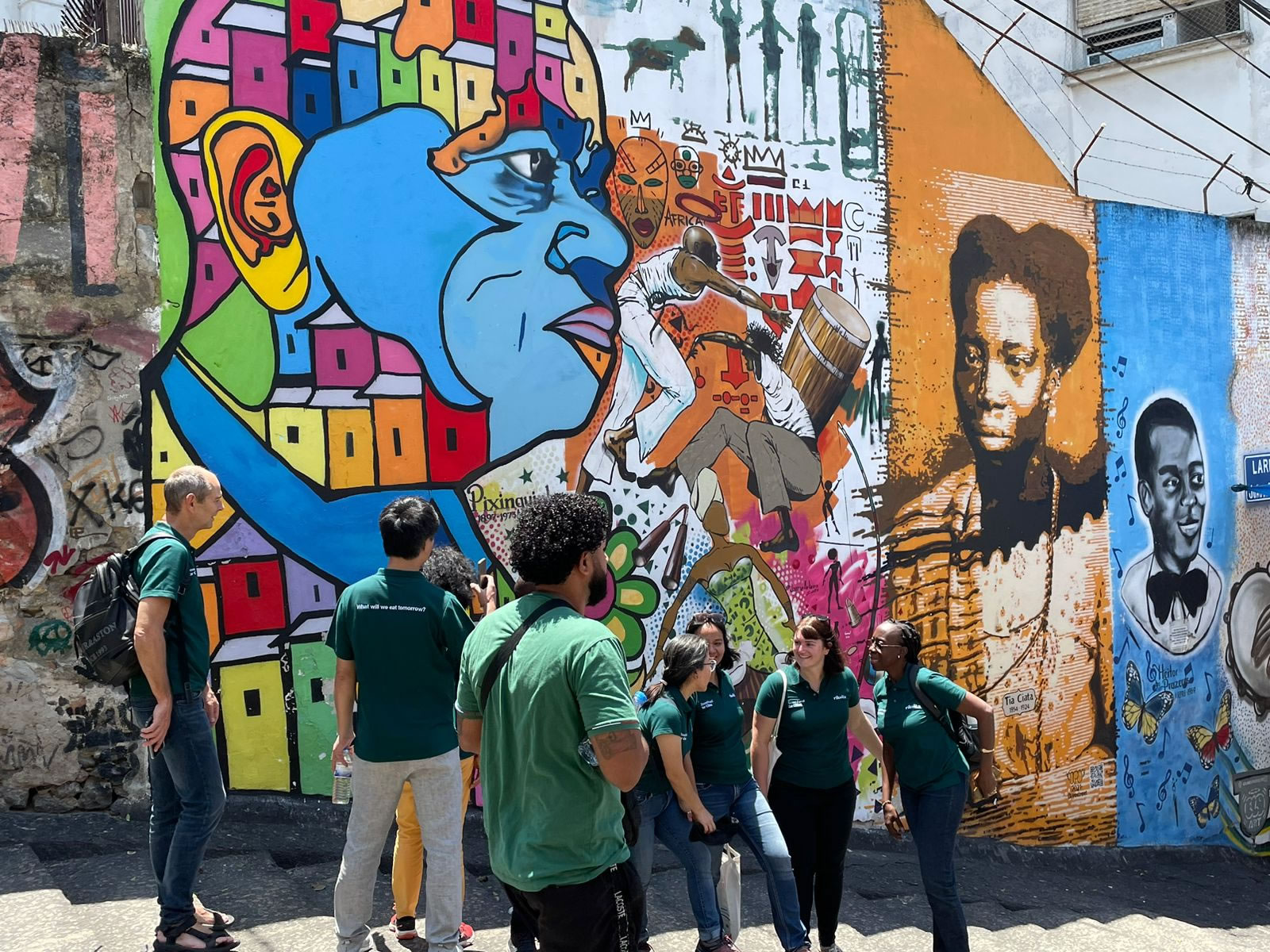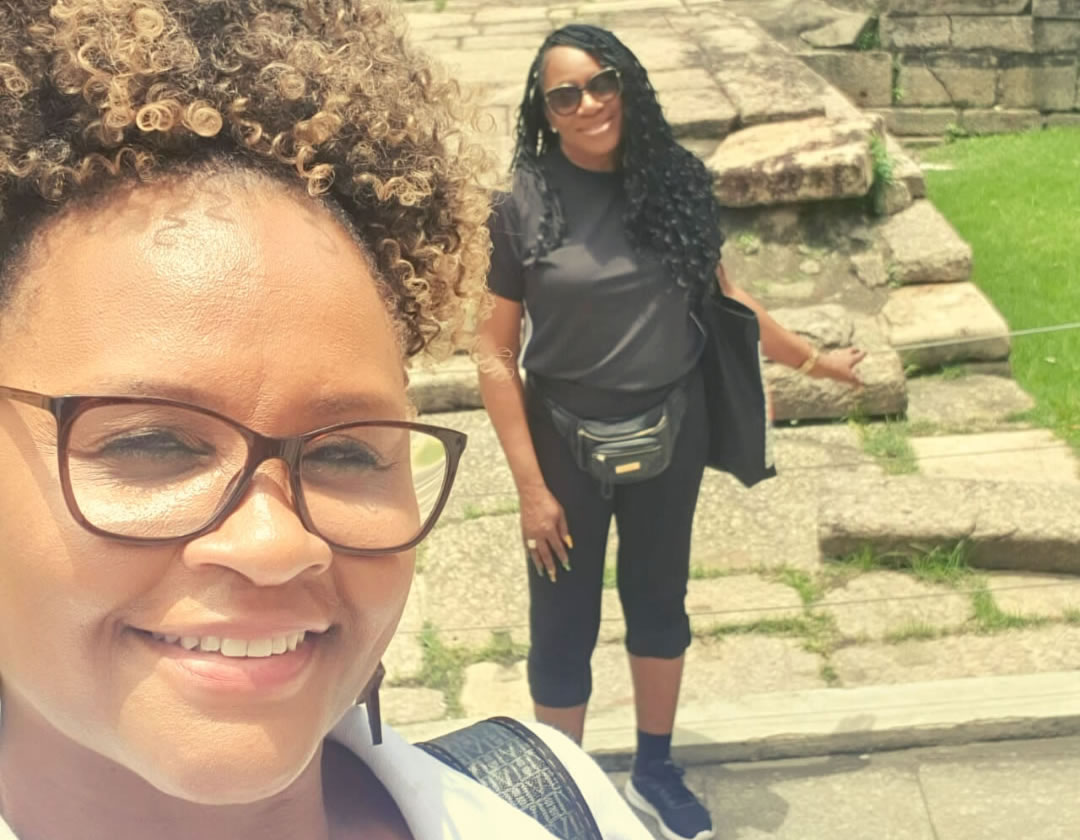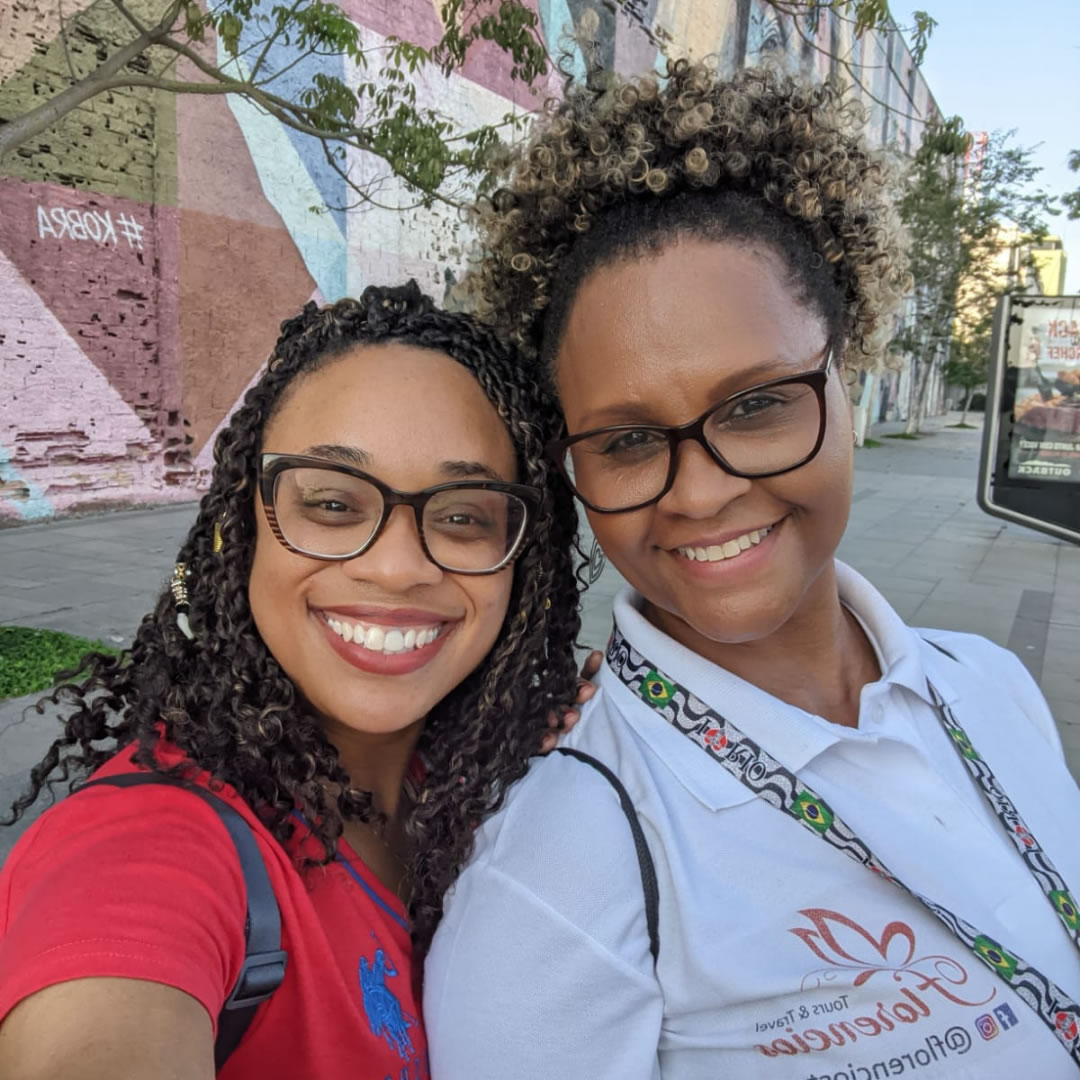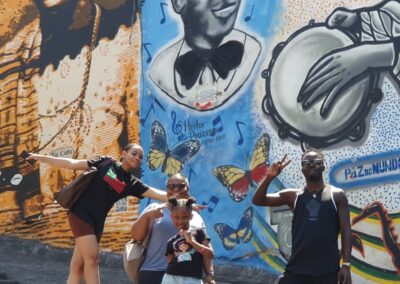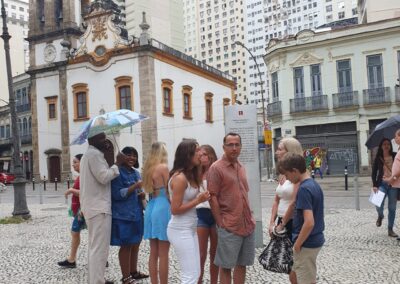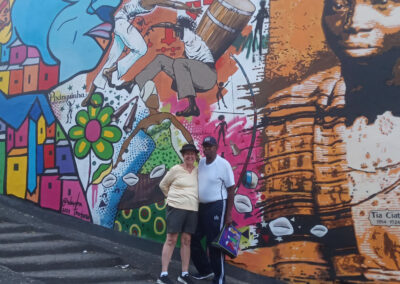Rio Little Africa Tour | Book Now
A Journey Through Afro-Brazilian Culture and History
3 Hrs 30 Min | 06 Stops | Mon – Sun
Discover the Hidden Gems of Rio's Little Africa Tour: A Journey Through Afro-Brazilian Culture and History
Welcome to the vibrant and colorful world of Rio's Little Africa Tour, where you'll discover the hidden gems of Afro-Brazilian culture and history.
This tour takes you on a journey through the heart of Rio de Janeiro, exploring the fascinating stories of the city's African diaspora and the rich cultural heritage they have built. From the rhythm of the samba to the taste of traditional Afro-Brazilian cuisine, you'll be invited to experience the lively and soulful atmosphere of Rio's Little Africa.
With a knowledgeable guide by your side, you'll explore the history of slavery, the impact of
colonization, and the resilience of Afro-Brazilian culture.
This tour is the perfect way to immerse yourself in the vibrant culture of Rio de Janeiro and gain a deeper understanding of the city's diverse and complex history.
So come along and discover the hidden gems of Rio's Little Africa Tour, a journey you'll never
forget.
The History and Significance of Afro-Brazilian Culture in Rio de Janeiro
Rio de Janeiro, one of the most vibrant and culturally diverse cities in the world, has a long and complex history with Afro-Brazilian culture. The city’s African diaspora dates back to the 16th century when the Portuguese brought enslaved Africans to Brazil to work in the sugar plantations. Over the centuries, these enslaved Africans developed a rich culture that blended African traditions with Brazilian customs.
Today, the Afro-Brazilian community in Rio de Janeiro is a vibrant and thriving part of the city’s cultural fabric. From the music of samba to the art of capoeira, Afro-Brazilian culture has played a significant role in shaping the city’s identity. The Little Africa Tour is a testament to this legacy, showcasing the contributions of Afro-Brazilians to the city’s history and culture.
The significance of Afro-Brazilian culture goes beyond its artistic and cultural contributions. It is also a powerful symbol of resistance and resilience in the face of oppression. Despite centuries of slavery and discrimination, Afro-Brazilians have maintained their cultural traditions and fought for their rights as citizens.
The Little Africa Tour highlights this history of resistance, showcasing the struggles and triumphs of this community.
The Route of the Rio Little Africa Tour and Its Landmarks
The Little Africa Tour takes you through the heart of Rio de Janeiro, exploring the city’s African diaspora and the cultural landmarks that have shaped the community’s identity.
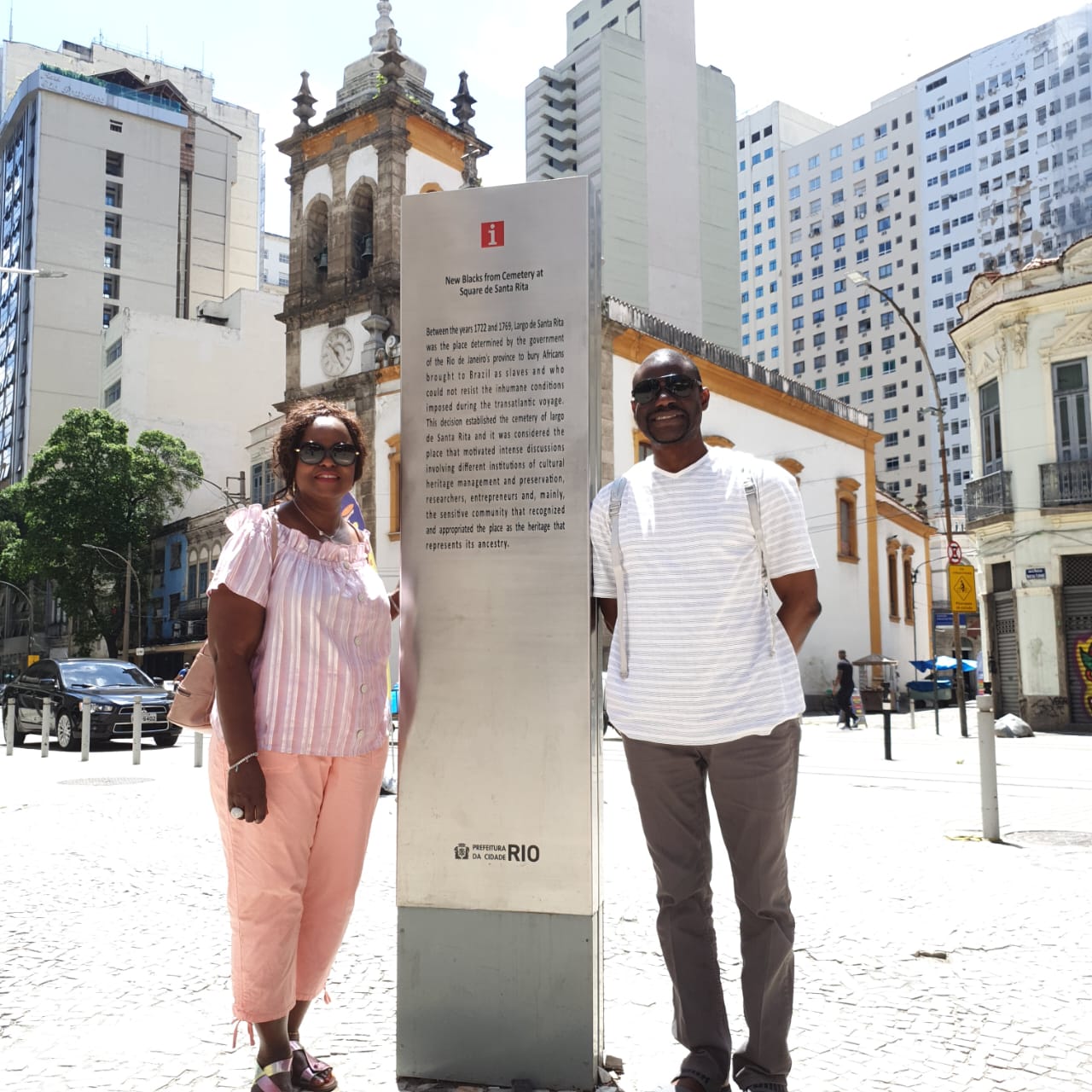
The Square of the Church of Our Lady of Rita
The tour explore the historic neighborhood of Saúde, where you’ll visit the Square of the Church of Our Lady of Rita – The Catholic Church is at the center of the political power responsible for registering births and deaths in the city. Right in front of the church, there is a memorial to the “New Blacks”.
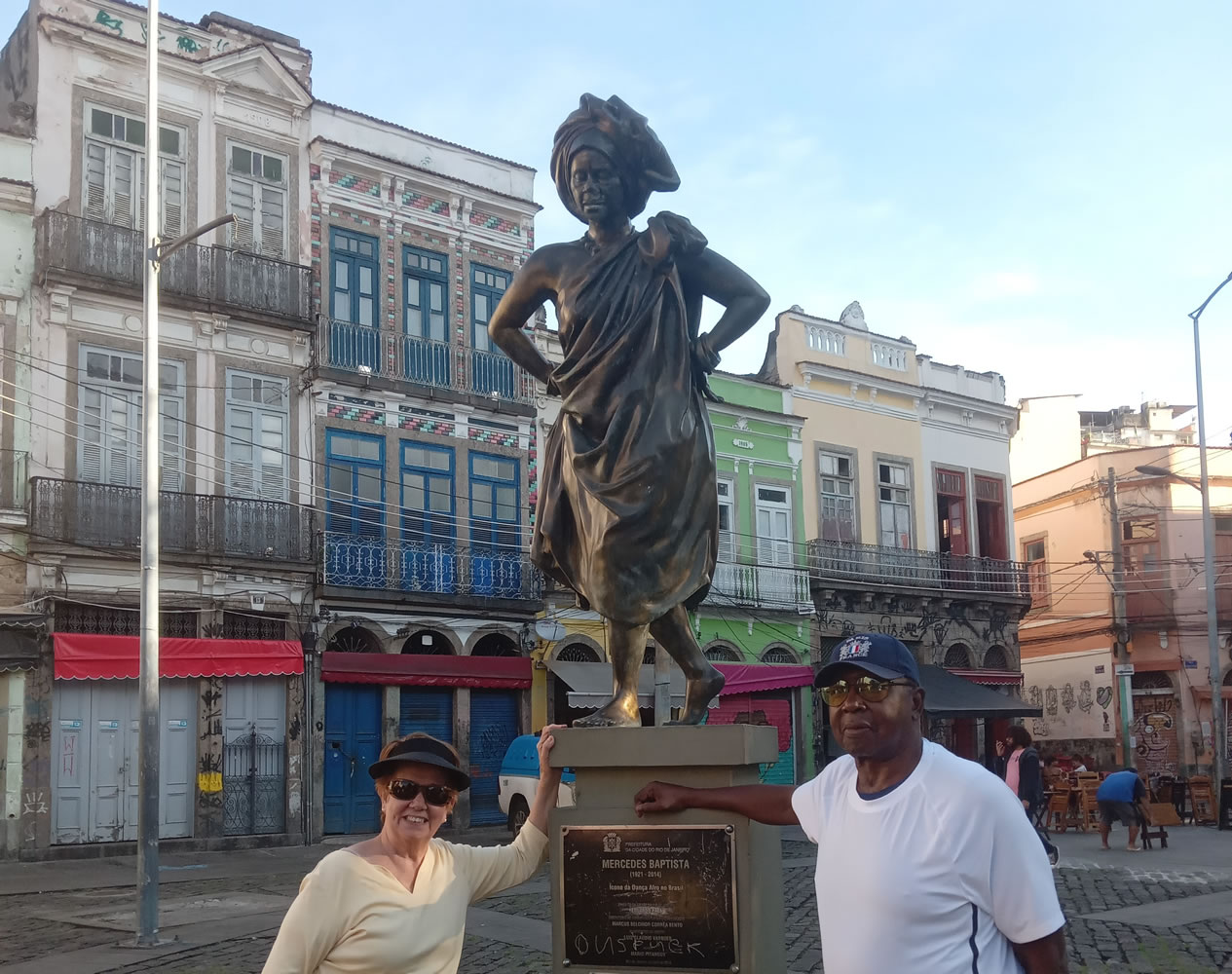
Prainha Square
The tour takes you to Prainha Square – One of the slave markets places of the region Valongo, mina slaves, and later hostesses the Zungus houses (The mush houses) were true urban quilombos (Morrons), in cities where black people used to make their drums, their dances, and revered their deities.
The Zungus formed a support network for runaway enslaved and African newcomers they were homes receiving enslaved and freed ones from all over Brazil (mainly from Bahia) and the world. There was the center of the black city, the hidden city.
Moreover, at Largo da Prainha you will see the statue of Mercedes Baptista, the first statue of a black woman in Rio. Mercedes Batista was the first Afro-Brazilian dancer to be part of the ballet group at the renowned Municipal Theater of Rio de Janeiro in the late 1940s.
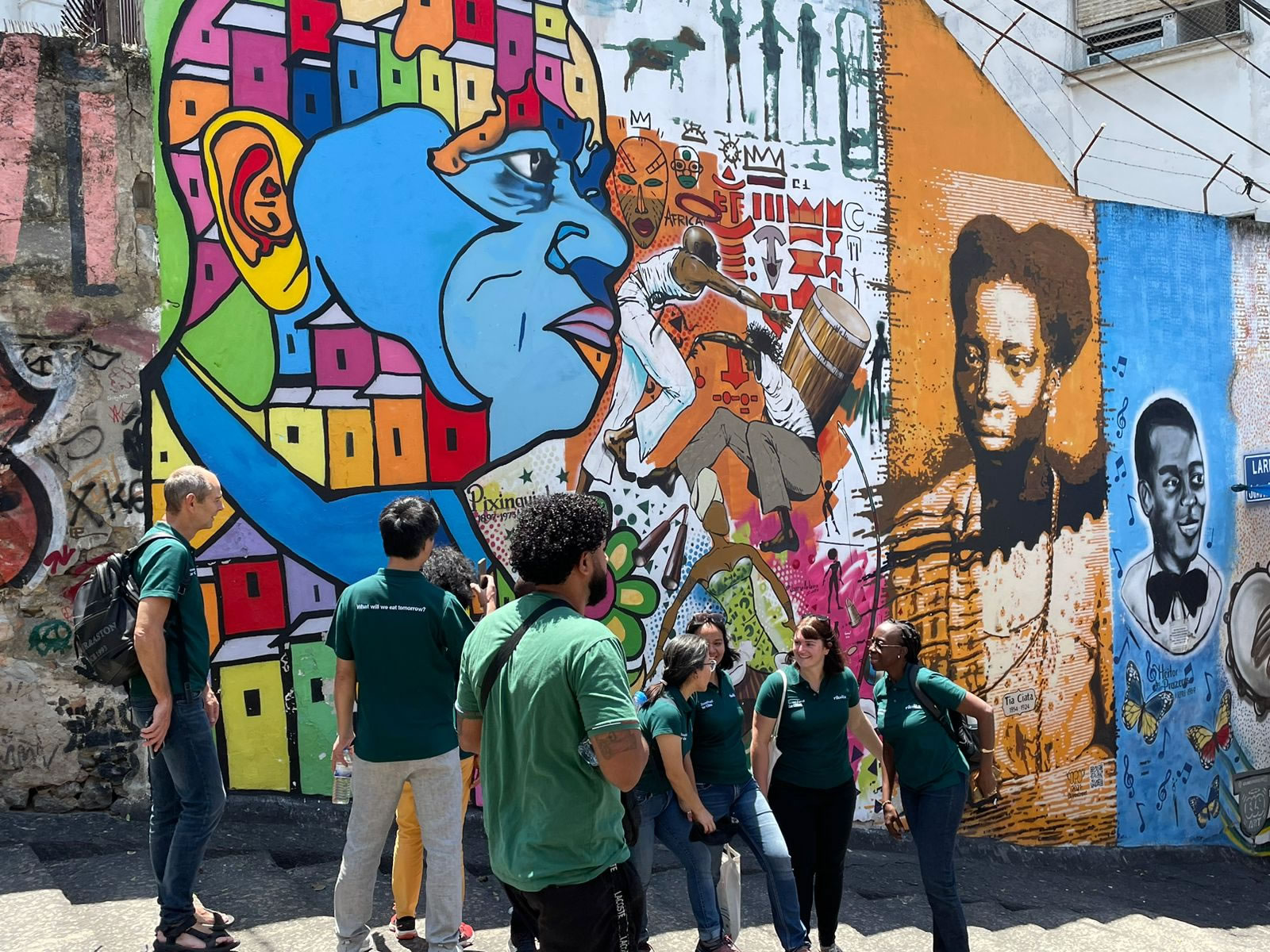
Pedra do Sal square
Next you’ll visit the Pedra do Sal square, the birthplace of samba in Rio de Janeiro and Cais do Valongo, a historic port where enslaved Africans were brought to Brazil. This landmark is a powerful reminder of the city’s history of slavery and the impact it has had on Afro-Brazilian culture. The Cais do Valongo was named a UNESCO World Heritage site, making it an essential stop on the Little Africa Tour.
Other places you’ll visit on Rio Little Africa Tour according to your availability for the day and time to do the Tour
Instituto Pretos Novos (IPN) Archaeological Site
A Memorial to the Newly arrived African enslaved in Rio. Those who arrived between the mid-eighteen century and late nineteenth century.
Tue – Friday: 10 am – 4:00 pm | Saturday: 10 am – 1:00 pm | Sunday and Monday: Closed
Instituto Pretos Novos (IPN) Archaeological Site
A Memorial to the Newly arrived African enslaved in Rio. Those who arrived between the mid-eighteen century and late nineteenth century.
Tue – Friday
- 10 am – 4:00 pm
Saturday
- 10 am – 1:00 pm
Sunday and Monday
- Closed
Museum of History and African-Brazilian Culture (MUHCAB)
Wednesday – Sunday : 10 am – 5 pm | Monday and Tuesday: Closed
Museum of History and African-Brazilian Culture (MUHCAB)
Wednesday – Sunday
- 10 am – 5 pm
Monday and Tuesday
- Closed
Additional Information
Included
- Certificated & Dedicated Tour Guide
- 3hr 30Min Walking Tour
- 06 Stops
- A detailed PDF with the summary of the tour send to you afterward
Not Included
Round Trip Transportation
Note 1: Uber is very cheap in Rio and has been the most popular preference among our travelers. There are also plenty of local cabs.
Note 2: If you prefer a tailored itinerary, including round-trip transportation, you can request a quote by filling out the contact form.
Starting Point: Museum of Afro-Brazilian History and Culture (MUHCAB)
Address: Rua Pedro Ernesto, 80. Gamboa, Downtown, Rio de Janeiro.
End of the Tour: Largo de São Francisco da Prainha: Our tour ends at Largo da Prainha a popular meeting spot in Rio, offering restaurant options and happy hours with live music that bring together the city’s diverse population. It can also ends at “Praça Mauá” – A square where two popular museums are locataded: Museum of Art of Rio (MAR) and Museum of Tomorrow, Additionally, you can explore the Olympic Boulevard.
Cancellation Policy
To receive a full refund, cancel up to 24 hours prior to the start of the experience.
In case of a no-show, the cancellation charge will be 100% of the listed tour fare.
Tours booked using discount coupon codes will be non-refundable. The cancellations charge will be 100% of the tour price if the cancellation is done less than 24 hours prior to the start of the experience.
Tips for Experiencing the Little Africa Tour
Now that you decided on taking the Little Africa Tour, there are a few things you should keep in mind to make the most of your experience. Here are some tips to help you get the most out of your journey through Afro-Brazilian culture and history:
- Wear comfortable shoes: The Little Africa Tour involves a lot of walking, so make sure you wear comfortable shoes that can handle the cobblestone streets and uneven terrain.
- Bring sunscreen and water: Rio de Janeiro can get hot and sunny, so make sure you bring sunscreen and plenty of water to stay hydrated. Anyway, there are plenty of bars and restaurants where you can buy water bottles.
- Be respectful: The Little Africa Tour takes you through neighborhoods that are significant to the Afro-Brazilian community, so be respectful of the people and places you encounter along the way.
- Be open-minded: The Little Africa Tour is a journey into a different culture and history, so be open-minded and willing to learn and experience new things.
Supporting and Preserving Afro-Brazilian Culture in Rio de Janeiro
The Little Africa Tour is an essential part of preserving and supporting Afro-Brazilian culture in Rio de Janeiro. By taking this tour, you are not only learning about the history and traditions of this vibrant community, but you are also supporting the local businesses and organizations that are dedicated to preserving this cultural heritage.
Conclusion: The Importance of Cultural Immersion and Education in Travel
The Little Africa Tour is more than just a tourist attraction; it is an opportunity to immerse yourself in a different culture and gain a deeper understanding of the complex history of Rio de Janeiro.
By learning about the contributions of Afro-Brazilians to the city’s cultural and artistic landscape, you are also gaining a greater appreciation for the diverse and vibrant communities that make up this incredible city. Travel is an opportunity to learn and grow, and cultural immersion and education are essential parts of this process.
By taking the Little Africa Tour and supporting Afro-Brazilian culture in Rio de Janeiro, you are contributing to a more diverse and inclusive world, one that celebrates and embraces the unique traditions and histories of all cultures. So come along and discover the hidden gems of Rio’s Little Africa Tour, a journey you’ll never forget.

